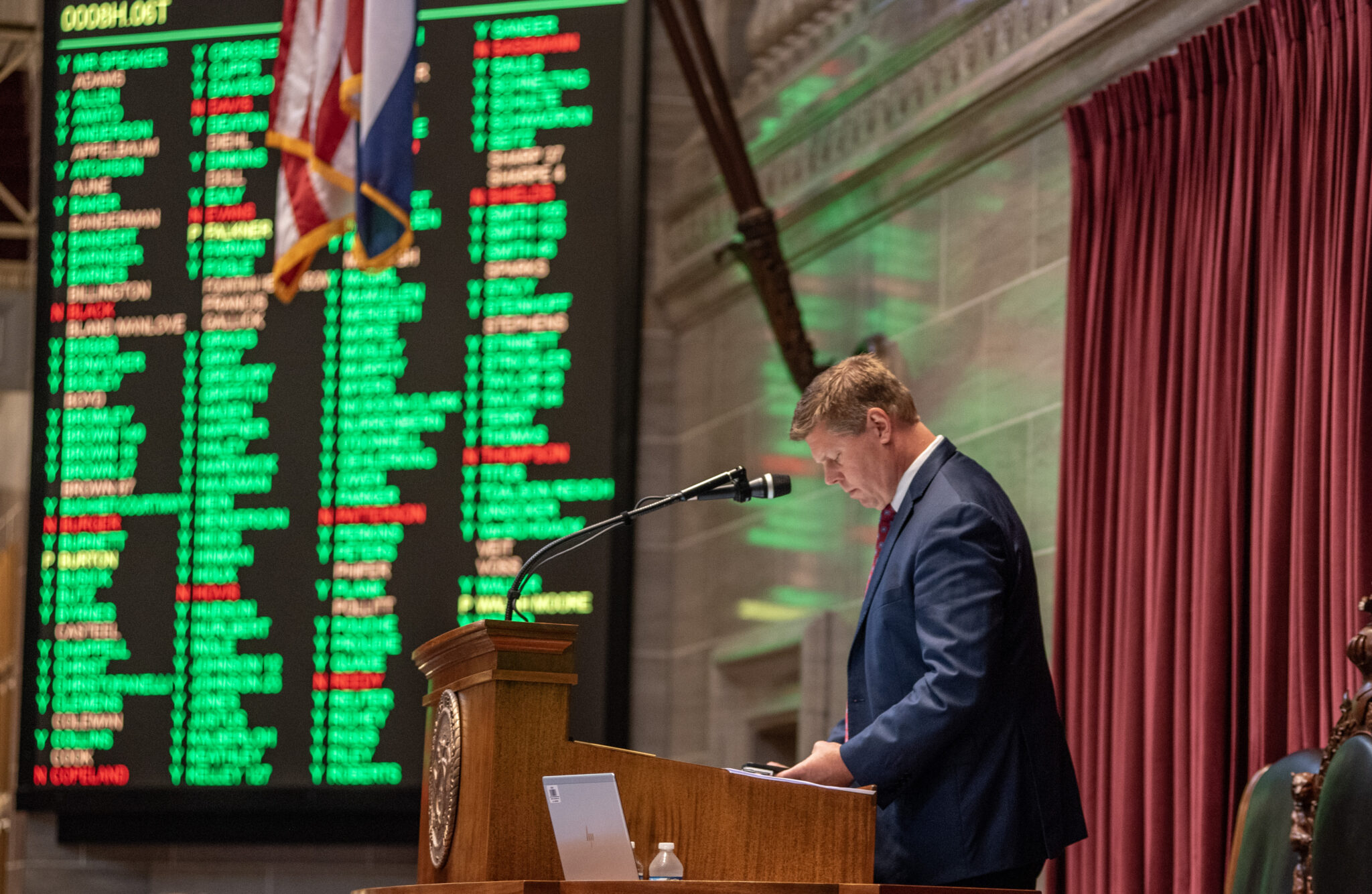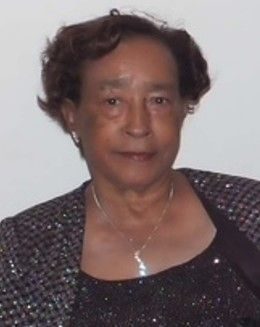Parson’s budget vetoes survive despite overrides in Missouri House

Gov. Mike Parson prevailed on all his vetoes Wednesday when the state Senate refused to consider any of the 14 budget overrides approved by the Missouri House.
The House achieved two-thirds votes to override vetoes on 10 budget lines providing raises for the Missouri State Highway Patrol and the Capitol Police Department. The other successful override votes were on lines that provided funds to Task Force 1, an urban search and rescue team headquartered in Boone County; recruitment incentives for the Missouri National Guard; a police communications center in St. Louis and a highway project in Springfield.
But when action moved to the Senate, Appropriations Committee Chairman Lincoln Hough said he would not seek a vote on any of the items. Questioned about his decision by Sen. Bill Eigel, R-Weldon Spring, Hough said he didn’t think there were enough votes to pass any of the items.
“I don’t like doing things out here on the floor when I don’t know the outcome,” said Hough, R-Springfield. “It is an exercise in futility, if you ask me.”
Eigel, who is seeking the Republican nomination for governor, said Parson ignored important needs in his home county in his vetoes. Eigel said he wanted to override a veto of a $5 million loan to St. Charles to eliminate contamination in the city’s drinking water.
Parson was “punitive in his vetoes and showed a significant lack of good judgment,” Eigel said.
Lawmakers were in the Capitol for the constitutionally mandated veto session. Parson vetoed 201 budget items and one statutory enactment.
Because override attempts must start in the chamber where a bill began, the Senate could not vote on the drinking water loan – or any other budget item – unless the House brought it to a vote.
The House got to choose which budget vetoes would be up for a vote because all spending bills originate in the House.
The nine lines for the patrol – $11.5 million total including $450,000 of general revenue – mean most troopers will receive a 20% increase in pay from their salary level in the year that ended June 30. Like all state workers, patrol employees received an 8.7% pay raise in March and Parson authorized additional increases of up to $4,000 a year after vetoing the pay raise allocations.
House Budget Committee Chairman Cody Smith, R-Carthage, said he wanted to override Parson to help the patrol recruit new troopers. There are 100 vacancies in the patrol, he said.
“I am interested in targeted pay increases where we have vacancies in those difficult jobs,” Smith said.
Democrats raised questions about the override. Rep. Peter Merideth of St. Louis, ranking Democrat on the Budget Committee, said there are other agencies with higher turnover and vacancy rates.
“Is this really where our priorities should be placed?” Merideth said.
The House voted on a total of 21 items Wednesday, with Republicans sponsoring 13 of the successful votes and Democrats losing on seven of the eight items they sought to override. The only successful House override vote sponsored by a Democrat was to provide $13 million for a new communications center for St. Louis police.
The House defeated attempts to override Parson’s veto of $2.2 million for the nursing home ombudsman program, $12 million for a law enforcement training center in O’Fallon and $13 million to clear a backlog of maintenance and repair issues in the Riverview Gardens School District.
Rep. Deb Lavender, D-Manchester, said the nursing home ombudsman program increase was necessary to address complaints about long-term care facilities. She said there was no question the state had the funds necessary for the $2.2 million increase. The state has only spent 75% to 80% of the money appropriated by lawmakers in the past four budget years, she said.
“Don’t tell me we can’t afford this relatively small amount of money, ongoing, to keep our elderly safe,” Lavender said. “Our most vulnerable seniors deserve our support.”
Lavender’s motion failed when only 88 members voted for it, far short of the 109 needed for an override.
When the House concluded work, Speaker Dean Plocher said he wanted the Senate to debate the House overrides but he declined to criticize the upper chamber for refusing to do so.
“They’re not going to do it,” Plocher said. “That’s their purview. I’ve always said, I try to play in the sandbox that I have here, to live within the bounds of what I can work with.”
Smith also declined to criticize the Senate for inaction. He said he spoke with Hough in the days leading up to the veto session. Smith said Hough told him he would react to what the House did and did not ask for an override on any specific item.
“If they don’t take that discussion, that’s their prerogative,” Smith said. “I do think it’s important that the House exercises our process, and that is what we did today.”
Miss Clipping Out Stories to Save for Later?
Click the Purchase Story button below to order a print of this story. We will print it for you on matte photo paper to keep forever.

